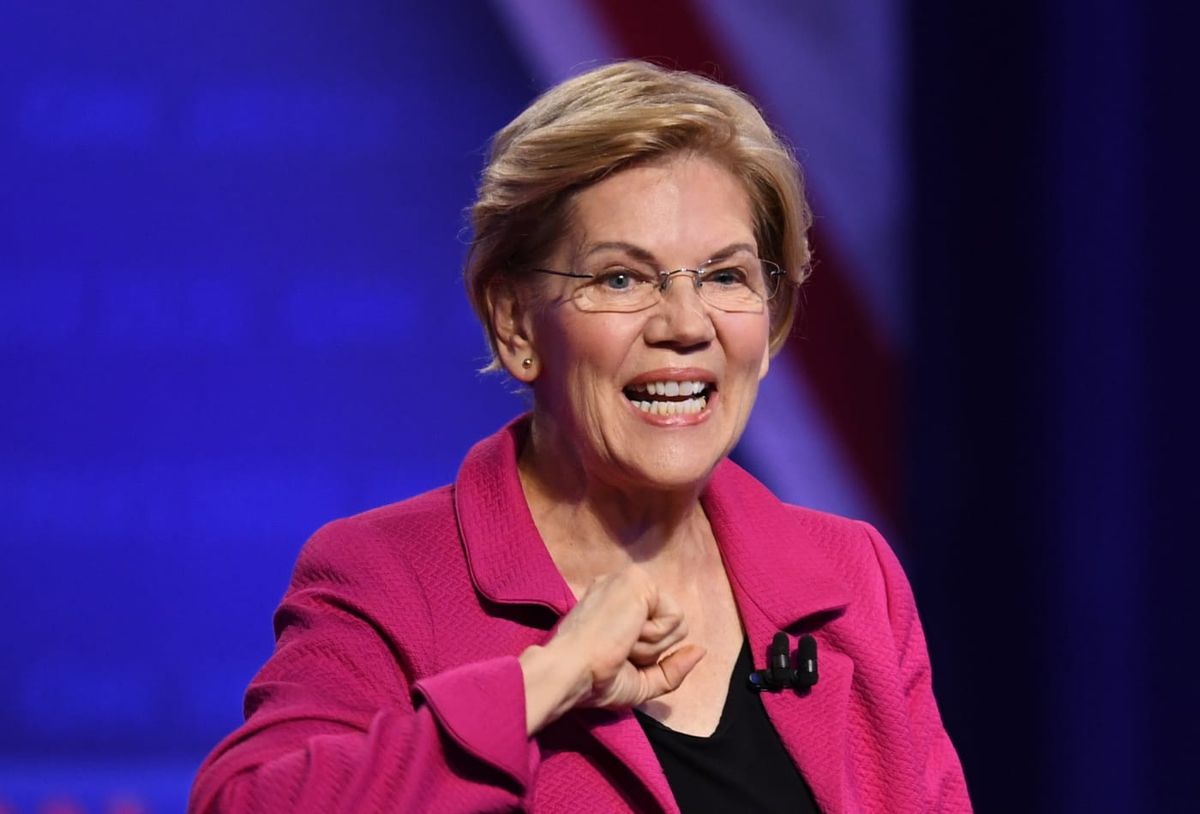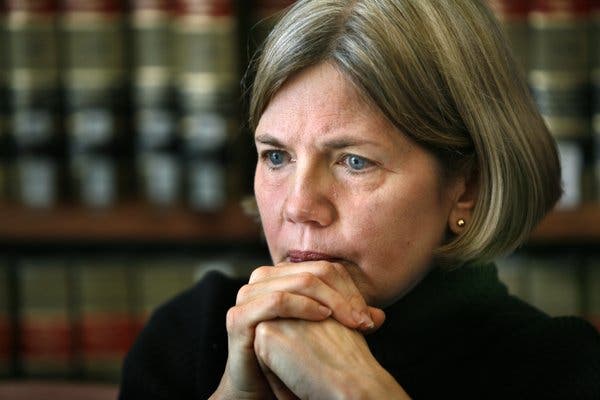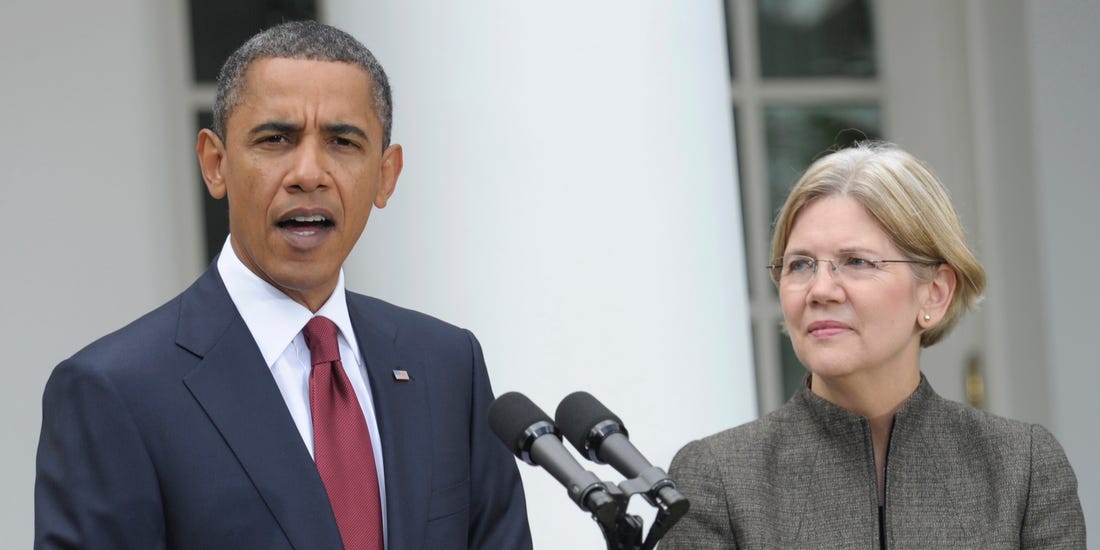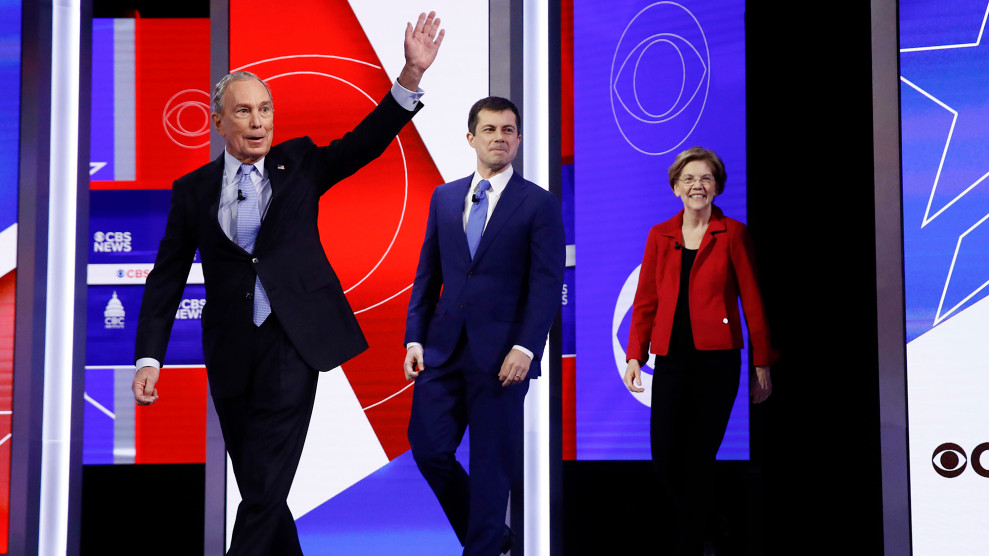Who Is Elizabeth Warren?

A few minutes every morning is all you need.
Stay up to date on the world's Headlines and Human Stories. It's fun, it's factual, it's fluff-free.
In the 2020 campaign for the Democratic Party’s nomination for president, Senator Elizabeth Warren has remained a major player in the field, despite coming in no higher than third place in the first four primaries. Prior to the Super Tuesday round of primaries, there were calls for her to drop out to shore up support for Senator Bernie Sanders, another progressive candidate.
Though Warren’s campaign initially made a big splash, a series of missteps and messaging reversals have opened her up to attacks from her political rivals.
Regardless of how Warren’s presidential run ends, she has a career of accomplishments to her name, including the creation of the Consumer Financial Protection Bureau.
Elizabeth Warren before politics
In November 2012, the Oklahoma-born Warren was elected to the US Senate for the state of Massachusetts. Her career prior to that had revolved around teaching law and helping Americans understand bankruptcy and protect themselves financially.
She completed a bachelor of science degree in speech pathology and audiology at the University of Houston in 1970, then received a law degree from Rutgers University in 1976. In 1978, she became an assistant professor at the University of Houston Law Center.
Over the next three decades, Warren made a name for herself as a law professor and an expert in the field of bankruptcy law. She followed up her time at the University of Houston with stints at the University of Texas Law School at Austin, the University of Pennsylvania Law School and, finally, Harvard Law School.

Warren also wrote numerous books, most of them focused on bankruptcy and personal finances, including “The Two-Income Trap,” which addressed middle-class debt through the lens of systemic economic inequality.
In October 2019, The New York Times reported on Warren’s period of “moonlighting” as a lawyer for major corporations in the 1980s and 90s. Clients she advised included Dow Chemical and Travelers Insurance.
The 2008 Crash
Following the catastrophic financial crash of 2008, Warren entered the public consciousness as an advocate for consumer protections and a proponent of reining in corporate banks. She gave interviews to NPR and The Daily Show with Jon Stewart discussing the financial crisis and what the government could do to prevent it from happening again.
In September 2010, President Barack Obama appointed Warren to serve as Assistant to the President and Special Advisor to the Secretary of the Treasury on the Consumer Financial Protection Bureau (CFPB). Warren had been one of the original advocates for creating the CFPB, which was created under the Dodd–Frank Wall Street Reform and Consumer Protection Act.
The CFPB is charged with regulating financial institutions and ensuring they deliver to consumers what they promise.

The 2020 election
Calling it “the fight of our lives,” Warren officially announced her candidacy for the presidency on February 9, 2019, making her one of the first to enter the race.
Right out of the gate, her campaign focused on releasing detailed plans for accomplishing ambitious goals, with “I have a plan for that” becoming her campaign’s catchphrase. These included plans to pay for nationalized healthcare, cancel student debt, and address climate change. She has said her policies would largely be paid for by increased taxes on the wealthiest Americans.
For her stances, Warren has been grouped with the progressive wing of the Democratic Party, which includes Senator Sanders.
Warren and Sanders have both advocated for Medicare for All (M4A) as an alternative to the US’s current healthcare system.
However, Warren has received criticism in progressive circles for backing down from her M4A stance after she stated that she would implement a three-year implementation period in which people could choose whether or not to join the program. She has been denounced as not progressive enough by those who advocate Sanders as the better choice for president.
However, progressive Representative Alexandria Ocasio-Cortez, who has endorsed Sanders for president, has acknowledged that passing M4A would be difficult and might involve compromise.
Warren’s campaign struggles
Warren placed third in the first Democratic caucus in Iowa, behind Sanders and South Bend, Indiana mayor Pete Buttigieg (who has since ended his campaign). In the next three primaries, she failed to place higher than fourth. As a result, there have been calls for her to drop out of the race to give Sanders a clearer path to victory.

Despite a strong showing at the Las Vegas Democratic debate and a subsequent fundraising boost, Warren has been hit from all sides for her reversal on accepting financial support from super PACs. Warren had launched her campaign with the promise not to accept “dark money”, but the Warren-supporting super PAC “Persist PAC” has declined to reveal its donors.
Warren has also been plagued by controversy from her 2012 senate campaign in which her opponent, Scott Brown, alleged Warren had gotten prestigious teaching positions by claiming to have Native American heritage.
Warren has stated that her family told her they were part Native American. To prove this, she took a DNA test in October 2018 that said she could have some “Native American ancestry from an ancestor…6-10 generations ago.” Nonetheless, critics have said her claiming to have Cherokee and Delaware heritage without any direct ties to those tribes is disrespectful.
Though the controversy didn’t stop her from winning the Senate seat, it has re-emerged in this campaign, largely due to President Donald Trump’s reference to it and his oft-repeated nickname for the senator, “Pocahontas.”
[article_ad]




Comments ()